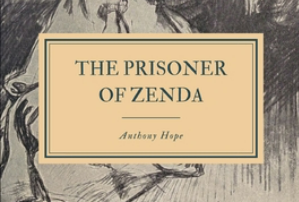Chapter 21 — If Love Were All!
byChapter 21 – If Love Were All! begins with Rudolf Rassendyll reflecting in quiet solitude, occupying the very chamber once used to imprison the King of Ruritania. The castle, now still after the chaos it once harbored, echoes with the memory of sacrifice, deception, and hard-won triumph. The room’s silence sharpens Rassendyll’s awareness of what has passed—his masquerade as the King, the danger he embraced, and the emotional turmoil he endured. Though the kingdom is finally at peace, the man who risked everything for its stability now faces a far more personal reckoning. He knows that his role in Ruritania’s salvation must soon end, and that the price of honor is the love he must abandon. The shadows in the room seem to mirror the growing weight in his heart as he replays every decision that led to this solemn farewell.
Rassendyll’s introspection is interrupted by Johann, the quiet but observant servant, who delivers both news and speculation from the town. Whispers of the impersonation still circulate, and curiosity about the downfall of Black Michael and his allies remains strong. But for Rassendyll, the gossip is merely a reminder of the lie he must bury to preserve the fragile balance now restored. The nation must remember its King unblemished, and Rassendyll’s part in that illusion must fade into obscurity. When the real King, now recovering from his ordeal, calls for Rassendyll, the emotional weight deepens. The two men, bound by an improbable circumstance, now share a moment marked by solemn understanding. Rassendyll returns the King’s ring—a symbol of the burden he carried—and insists that any recognition of his service must remain a secret, for the greater good.
Their conversation is respectful and layered with unspoken truths. The King, grateful yet humbled, speaks with genuine admiration. Yet even in this moment of shared history, both men know the boundary between them cannot be erased. Rassendyll’s sacrifice was complete, and his presence, though noble, would become a threat to the peace he helped restore. With that, the final part of his disguise is surrendered, and he prepares to leave behind the kingdom and the woman he loves. The most painful farewell, however, is still ahead—Princess Flavia. When summoned to her, Rassendyll enters the encounter knowing their love, though real, has no place in the life she must now lead. Their conversation is tender, filled with yearning and the silent devastation of parting.
Flavia’s loyalty to Ruritania, and her duty as future Queen, stand in opposition to the love they share. She does not doubt her feelings for Rassendyll, nor does she question his. Yet the burden of honor rests on both their shoulders. Elopement, though briefly imagined, is discarded as a betrayal to those who depend on her strength. Her resolve does not come without tears, and their parting is marked by a kiss that seals both their love and their separation. Rassendyll leaves her not with bitterness, but with admiration for her courage. He carries away her memory like a sacred wound, knowing no joy can ever replace what they surrendered. It is a parting not of weakness but of immense strength.
As dawn breaks, Rassendyll departs Zenda in the company of Colonel Sapt and Fritz von Tarlenheim. Their journey to a remote railway station beyond Ruritania’s border is filled with quiet reflection. Few words are exchanged, yet the gravity of their shared experience lingers in every glance and gesture. At the station, they bid farewell with silent respect, knowing they may never meet again under such circumstances. Rassendyll boards the train, but his thoughts remain behind—in the halls of the castle, in the gaze of a Queen he cannot have, and in a nation that cannot know the full truth of what he gave. The wheels of the train carry him away, but his heart remains fixed on what might have been.
The chapter concludes not in triumph, but in noble sorrow. Rassendyll’s journey has proven him more than a man of action—he is a man of principle, who chose duty over desire and honor over happiness. His love for Flavia was real, but it was never enough to outweigh the needs of a kingdom. The sacrifice they make becomes the moral center of the story, emphasizing that love, when guided by honor, often demands the ultimate price. In stepping aside, Rassendyll becomes a tragic hero—not because he failed, but because he succeeded at great personal cost. The legacy he leaves behind is invisible but enduring, stitched into the very fabric of Ruritania’s stability, and into the heart of a Queen who can never speak his name.


